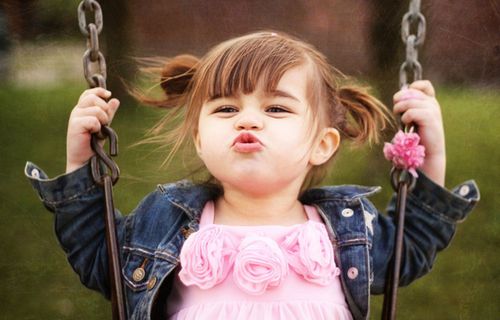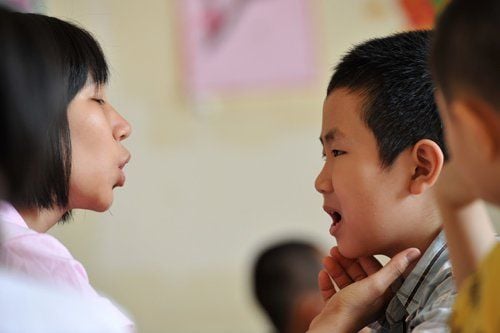This is an automatically translated article.
By the time a baby is 22 months old, a toddler is much more advanced than an infant's skills, knowing what he wants but not necessarily how or can even ask to get it. During these 22 months, your baby has learned so many things that will amaze you every day. In fact, now kids have their own food preferences and throw tantrums. At this age, babies are gradually transitioning to the toddler stage, eager to explore the world around them. So what are the developmental milestones of a 22-month-old baby? In this article, we will provide useful information for parents to understand the language development and cognitive development of their 22-month-old baby.1. Physical development milestones
1.1. Weight and height
The average weight of a 22-month-old baby is 11.5 kg for girls and 11.7 kg for boys. The average height of a 22-month-old baby is 85cm for girls and 86cm for boys.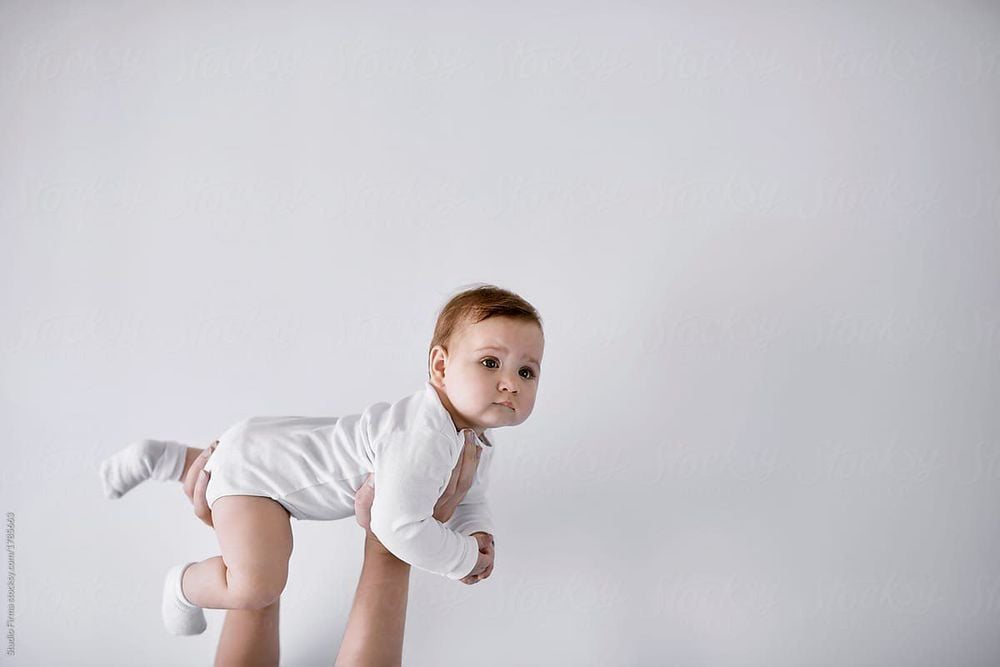
Cân nặng trung bình của trẻ 22 tháng tuổi là 11,5 kg với trẻ gái và 11,7 kg với trẻ trai
1.2. Fitness and movement
Eating and drinking: 22-month-old children can feed themselves with a spoon, drink water directly from a cup, put food correctly into their mouth without much spillage due to better muscle coordination, motor functions, etc. The raw animation has been fine-tuned. Your baby will also have a lot of dexterity to open boxes, cabinets, open lids and stack blocks. Your child will now hold crayons better and scribble and draw some basic shapes. Studies have shown that 22 months is the time when children move from scribbling to drawing simple but meaningful shapes- Teeth: by 22 months, your baby will have all 16 teeth. This will help them eat and chew well, so they can digest better. However, some children may develop second molars in the upper or lower jaw, making it difficult for them to eat, so they may lose their appetite for a while.
- Motor skills: a 22-month-old baby can kick a ball, walk backwards and can even balance on one foot while clinging to a sturdy chair or wall. Children can run fast and want to run whenever possible so make sure you keep an eye on them. At this point, the child can bend over easily instead of leaning forward when wanting to grab something. Children can also squat when playing games, and also tend to like to drag toys with them.
2. Milestones of cognitive development
Cognitive developmental milestones for 22-month-olds relate to intelligence, rationality, and decision-making.Language and speech development: your child can now understand simple words and phrases like “drink milk”, “laugh”, “mama”... They can even understand complex phrases like “put your toys away and go to sleep”. Your baby will also babble less and will say more definitive words instead. When playing alone, children often talk alone, which is completely normal, children are developing their imagination as well as their vocabulary. Children can also distinguish between negative and positive words, they will say "yes" to what they like and "no" if they don't. Better memory: Your baby will recognize faces and remember places. When they see a familiar person, they may smile. If you take your child to a place where he used to play before, he will get very excited and clap his hands. According to Dr. Robin Fyvush, a researcher at Emory University, in Atlanta, toddlers develop good memories by the end of the second year of life. Children also develop an understanding of the past and present. Associating objects with nouns: Your 22-month-old baby can tell when you point to an image they've seen before and name them. Children can also name their siblings. Understanding Shapes and Orientation: When you turn your child's favorite book upside down, he or she can slowly flip the book back to its proper place. Your baby will remember simple shapes like circles, triangles and squares, and will remember the pronunciation of some letters of the alphabet. Find out the purpose of objects in the house: Your baby will be a keen observer and notice how you use different objects in the house. The child will then try to repeat the action. For example, your child may pick up the phone and pretend to be talking like you. Find hidden objects: If you hide something from your child's sight, he or she will want to find it and show great interest in it. Check Outcomes: By 22 months babies will have a better understanding of cause-and-effect relationships, which means they will take an action just to test its possible effect. For example, turning a light switch on and off. Likes music and rhymes: Your baby will show an interest in rhymes and will recite any words he can remember. If you sing the first line of the poem, your child will try to sing the next line or hum along with the music. At this age, children will enjoy listening to music and don't be surprised if they begin to dance to the tune. More focus: You will no longer have to coax your baby to sit around and play with toys. Children will show better concentration in the activity and are not easily distracted, as long as it is a game or activity they like they will try to do it until the goal is achieved.
3. Social and emotional development milestones
Develop a sense of independence: By 22 months of age babies will demonstrate a degree of independence when performing basic daily tasks such as getting up on their own, brushing teeth, and going to the toilet. Children can understand the sequence of activities that take place in a day.Improve social relationships and play with friends: Toddlers develop better relationships with other children, especially with people they see often, such as siblings and brothers cousin. Children can also recognize familiar faces in a crowd, and will show shy expressions when introduced to strangers.
Imitate adults, understand nonverbal communication: A 22-month-old will imitate adults, mainly parents, by saying phrases and words that they have heard from mom or dad. It is very likely that children will imitate the tone of their parents. They react to situations in a similar way to what their parents did. Your child will develop a clearer understanding of nonverbal communication. For example, when you put your finger to your lips, your child will immediately understand that you are asking them to be quiet.
Understanding limits: children will begin to distinguish between reasonable and unreasonable behavior. Children understand and remember them. For example, children will remember that they are not allowed to leave the house alone or take your belongings without your permission. Since children's language skills are better, now would be a good time to introduce new rules.
Tantrums: This is the age when babies often throw tantrums for the silliest reasons. It often happens when children don't get what they want. For example, when you take your child to the supermarket and to the toy area that they like, the child wants to buy a toy that you do not agree with. Children will continue to do so until they achieve their goals, but remember if you are not tough to correct them in the first place, you will always have to comply with their unreasonable wishes later on.
Personality development: Your child will now know his name and can tell when someone is talking to him or about him. In addition, children will develop specific traits and will express happiness, anger, and sadness in their own ways. Children can also start to do things on their own.
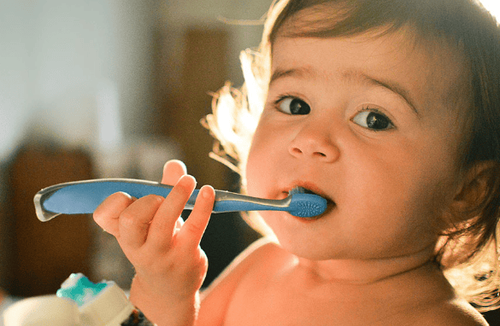
Trẻ 22 tháng tuổi có thể thực hiện các công việc như tự thức dậy, đánh răng và đi vệ sinh
4. Sleep of a 22-month-old baby
Most 22-month-olds need about 11 to 12 hours of sleep at night, plus a nap of about 1.5 to 3 hours, for a total of about 13 to 14 hours of sleep each day.A 22-month-old who wakes up screaming at night may be experiencing nocturnal terrors. A nocturnal sleep crisis is defined as a period of crying or screaming but the child does not actually wake up. Do not try to wake your child during night terrors; Just do your best to put your baby back to sleep by comforting him. And make sure your baby's sleeping area is safe to avoid getting hurt if he or she struggles.
While the cause of nocturnal terrors is unknown, stress, change in routine, and fatigue may all play a role in this phenomenon. So, try to maintain a regular bedtime routine and put your child to bed early enough so he can get a good night's rest.
5. Meals for a 22-month-old baby
Children aged one to two should eat as much as you: three meals a day, plus two snacks. Don't forget to offer a variety of foods for your baby, most toddlers should eat about 3⁄4 to 1 cup of fruits and vegetables, 1⁄4 cup of whole grains, and three tablespoons of protein per day.If you want to wean your baby at this time, do it slowly, instead of six milk meals a day now reduce it to 5 and let the baby get used to it. Don't do it suddenly, it will affect the child's emotions.
6. Play and Activity
Your 22-month-old's activities should include both indoor and outdoor play. Give your child puzzles to solve, as it will help develop his intellectual skills. Moreover, let your children participate in physical activities so that they have good physical and mental health.Also, take your kids to a wildlife sanctuary. This will not only entertain your child but also help him enjoy nature and learn facts related to earth and life.
Fun activities, games and toys for 22-month-old babies include:
Pretend. Dressers, vehicles, toy cash registers, and playthings are all popular toys at this age. Equestrian toys. Cars, carriages, and strollers keep kids busy. Musical instrument. Choose from a selection of noise-making instruments with kid-friendly xylophones, pianos and drums. Books: Read to your child a few books whenever you can.
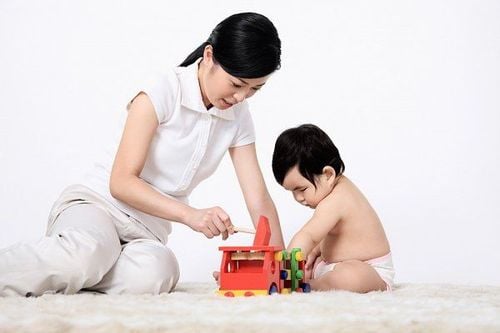
Các hoạt động của bé 22 tháng tuổi nên bao gồm cả vui chơi trong nhà và ngoài trời
7. Tips to improve the development of your 22-month-old baby
Your child's attention has improved but is not fully developed. So don't push things so far that they feel overwhelmed and exhausted. For example, your child may love to memorize nursery rhymes, but if you recite a rhyme too quickly, your child will lose interest and never try to learn.Whenever you give your child an object, name the object. Studies have shown that identifying objects helps stimulate children's language ability
Talk to children even while they are playing, this will help children know that you care about them and more, They will also pick up on speaking skills quickly and may even overcome 22-month-old speech problems if they have one.
Children prefer teaching with pictures over teaching with words. That means when you're teaching rhymes or the alphabet to your child, show them symbolic pictures rather than teaching them with words. This way, the child will retain the information for a longer period of time.
Take your kids outside to play as often as possible, so they can relax, fulfill their urges to run, and test their brain-muscle coordination.
Ask your child to articulate his request verbally. Even if you understand what your child is trying to convey, act as if you don't. In this way, children will talk and express themselves more clearly.
Encourage 22-month-olds to get out of their comfort zone and interact with other toddlers during playtime. This will help children understand the importance of having rich social relationships.
Babies learn from their parents and therefore it is important to teach them the correct way to do an activity. For example, if your child has trouble throwing the ball, show him how. Once the child gets it right, encourage him.
Remember to protect the baby in your home. Children are at an inquisitive age and will play with objects in the house to understand their purpose. Remember to keep dangerous items out of the reach of children.
Every child has a different developmental milestone. Your child may not have all of the above developmental milestones for his age, so don't worry he will quickly catch up to the growth momentum. However, take your child to the doctor if he or she doesn't meet most of the developmental milestones listed above or you have to wait too long and your child still isn't making much progress.
In addition, 22-month-old children need 5mg of elemental zinc/day to eat well, reach the correct height and weight and exceed the standard. Zinc plays a role in affecting most biological processes taking place in the body, especially the breakdown of nucleic acids, proteins... Organs in the body when zinc deficiency can lead to a There are a number of diseases such as neurological disorders, irritability, etc. Therefore, parents need to learn about the role of zinc and guide them to appropriate zinc supplements for their children.
In addition to zinc, parents also need to supplement their children with other important vitamins and minerals such as lysine, chromium, B vitamins,... errands.
Please regularly visit Vinmec.com website and update useful information to take care of your baby and family.
References: babycenter.com, momjunction.com, thebump.com, parenting.firstcry.com




